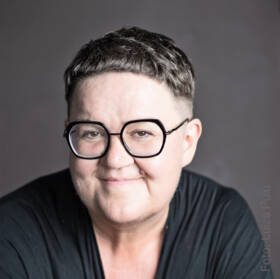Addressed the challenges associated with the pandemic and developed counselling and support services.
Background
The COVID-19 pandemic and the concomitant measures led to numerous restrictions; its socio-economic effects exacerbated precarious living conditions, caused a variety of social problems and as a consequence counselling and support services saw an increase in people needing help. However, due to the situation and the restrictions, "traditional" social services were unable to offer support on the usual level, as direct social exchange, networking and the initiation of contact between social institutions and potential client groups experiencing poverty or exclusion was impaired. Social encounters were/are increasingly shifting from the inside to digital or public spaces making it a matter of urgency to expand these spaces and offer new (digital) forms of counselling and support services.
Project Content
The hardship and the challenges imposed by the pandemic required flexible measures and a significant expansion of support services. In this research project, we addressed these challenges and developed new formats of counselling and support. In line with the principles of “outreach work”, outdoor areas as well as digital spaces were used to get in touch with people in need. It was/is important to “meet people where they are” (i.e., using the spaces they already use). The focus of this research project was therefore on extending proven counselling and support services (alternative settings) based on the preferences, habits and scope of action of those needing them.
Goals
The project was aimed at facilitating social participation by expanding support systems for children, young people, and families. We intended to design counselling, support and self-help services that overcome the communication barriers caused by the pandemic and can be used by as many people as possible. For this, popular services, public places or digital spaces were identified and analysed. We also put the developed tools into practice, and continuously evaluated and improved them. The insights gained are communicated in guidelines, publications and workshops.
Methods
The involvement of numerous organisations from different areas, helped us viewing the situation from different angles. The Armutskonferenz (i.e., Austrian Network Against Poverty) supported the cooperation partners and coordinated the research project. The Ilse Arlt Institute for Social Inclusion Research at the St. Pölten University of Applied Sciences provided its expertise and supported the project during all stages (design/implementation/evaluation). In a participatory process, tools, methods, alternative settings, and guidelines were developed by experts and users in a common effort. The resulting toolkit contained instructions on how to implement information, counselling, support, empowerment, and networking activities in public and digital spaces. The prototype toolkit was evaluated, redesigned and improved, revaluated in several cycles by the participating organisations.
Results
Existing tools and proven methods used by counselling and support services were investigated and further developed through joint learning processes. The resulting tools and methodical approaches were made available in the form of a toolbox. Also, the generated knowledge and the insights gained were/are shared with organisations and in workshops for disseminators.
Publications (in German):
Armutskonferenz (2022): Toolkit Alternative Settings öffentlicher Raum
Armutskonferenz (2022): Toolkit Alternative Settings digitaler Raum
You want to know more? Feel free to ask!
Department of Social Sciences
Jutta Konvicka (Verein – Die Armutskonferenz)
- Arbeiter-Samariter-Bund Wien – Wohnen und Soziale Dienstleistungen GmbH
- EXIT_sozial, Linz
- ISGS drehscheibe, Kapfenberg
- Jugend am Werk Steiermark GmbH, Geschäftsbereich Ausbildung und Arbeitsmarkt Graz
- JUNO Zentrum für Getrennt- und Alleinerziehende, Wien
- Schuldnerberatung Niederösterreich gemeinnützige GmbH, St. Pölten
- Schuldnerberatung Steiermark GmbH, Graz
- Verein „für Alleinerziehende und getrennt lebende Eltern“, Linz
- Verein maiz, Linz
- Verein „ILLUSIONS“ Koordinationsbüro für soziokulturelle Projekte und Initiativen, Graz
- Verein „Wohnplattform“, Linz
- VertretungsNetz – Fachbereich Erwachsenenvertretung Wien
- ZEBRA – Interkulturelles Beratungs- und Therapiezentrum, Graz

.jpg)

